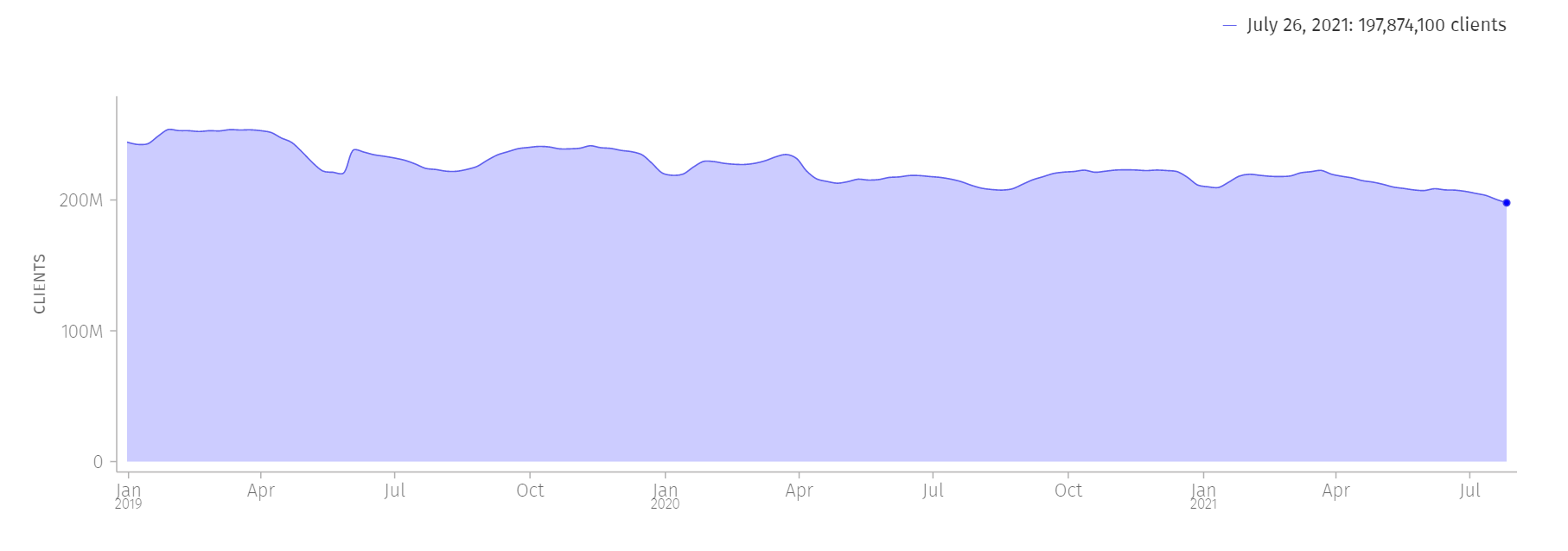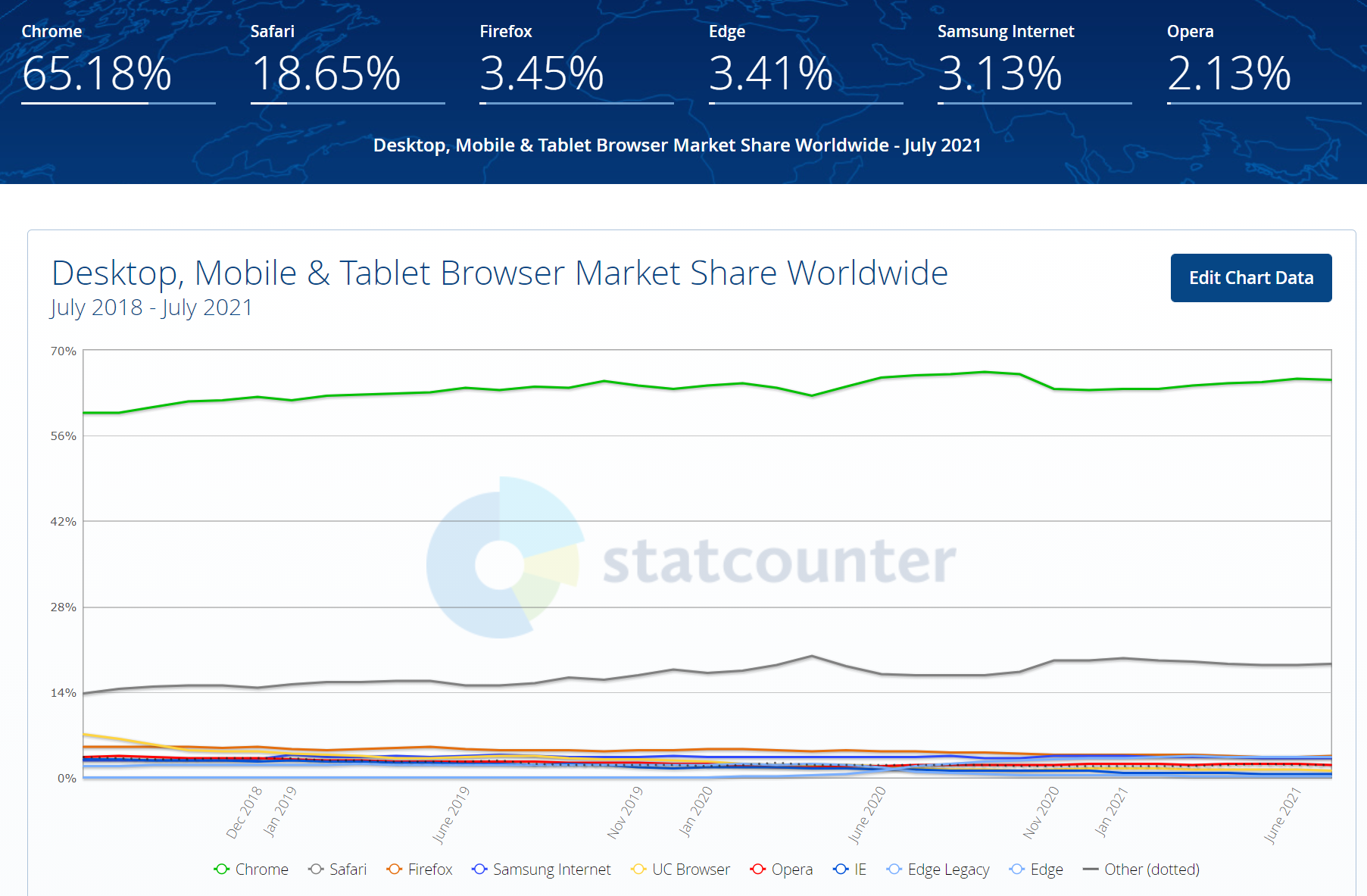In brief: Firefox has long been considered one of the better alternatives to the world's most popular browser, Chrome, particularly among Linux fans. So it's a bit surprising to learn that Mozilla's product has been losing quite a few users over the last three years---46 million, to be precise.
That figure comes from Firefox's own Public Data Report and is highlighted in a Reddit thread by u/nixcraft (via itsfoss). It reveals that the browser had 244 million active monthly users at the end of 2018, but by the second quarter of 2021, user numbers had fallen to 198 million.
According to Statcounter, Firefox currently has a 3.45% share of the desktop, mobile, and tablet browser market, sitting behind second-place Safari (18.65%) and the long-time number one, Chrome (65.18%). It's only just above Edge, which has a 3.41% share.
Firefox's market share wasn't always in single digits. At the end of 2009---seven years after it launched---when Internet explorer was still king and Chrome in its infancy, Mozilla enjoyed an almost 32% market share, while IE had around 56%. But Firefox's share had halved by mid-2013 as Chrome started its ascension to the top.
There are a few reasons why Firefox has been hemorrhaging users in recent times. Rivals Chrome, Edge, and Safari are the default browsers on Android, Windows, and Apple devices, respectively. And the companies behind them are often aggressive in their attempts to attract users: last year, the Chrome Web Store briefly warned those using Edge about potential security risks, suggesting they switch browsers. Microsoft has also been guilty of similar tactics.
Another factor behind Firefox's fall is likely the browser's own missteps, such as the lack of significant performance updates, and major overhauls that have pushed some users away.


